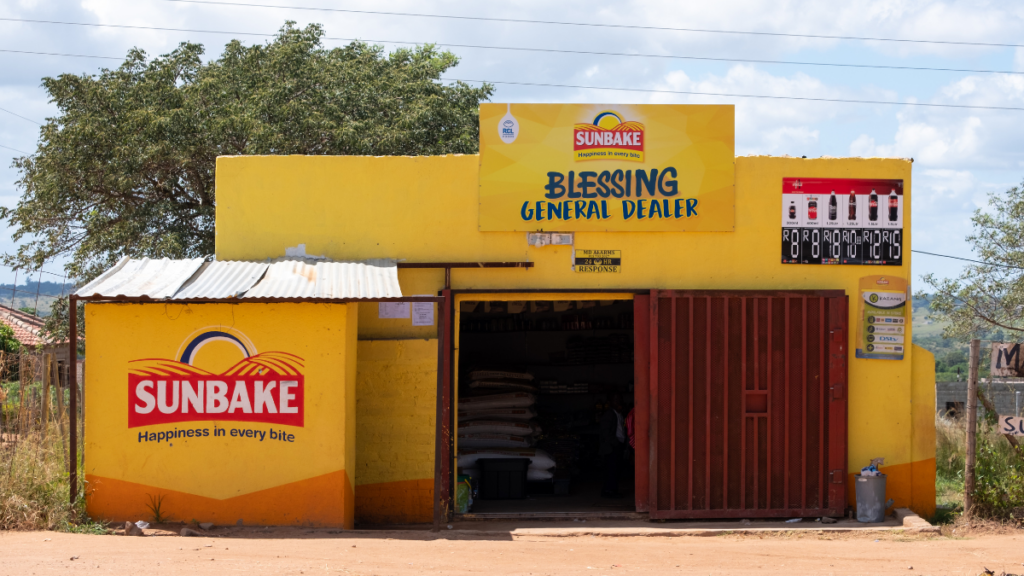South Africa’s retail giants, particularly Pick n Pay, are grappling with a major and escalating challenge — the rise of the informal economy. The retail group, in its latest annual results, warned of the growing dominance of informal retailers who are rapidly capturing consumer spend, especially in lower-income communities.
Pick n Pay reported strained operating conditions, highlighting low economic growth, persistent unemployment, inflationary pressure, and major infrastructure setbacks as key concerns. In response, the company acknowledged a “structural shift” within the market.
Massive Consumer Migration to Informal Retail
This shift is heavily influenced by price-conscious consumers who are seeking more value. Shoppers are increasingly turning away from traditional supermarket formats in favour of informal outlets offering convenience, competitive pricing, and community-based service.
Informal traders — such as spaza shops and hawkers — have seen a surge in customer loyalty, especially in townships and peri-urban areas. Their proximity to consumers and minimal overhead costs allow them to outprice formal chains.
Global comparisons show that discount chains occupy a much larger share of the market abroad than in South Africa. This points to significant growth potential in local value retail, but it also underscores the vulnerability of legacy retailers failing to adapt.
Major Players React to the Informal Boom
Pick n Pay is shifting its strategy to counteract these pressures. The retailer is focusing on enhancing efficiency, localising store formats, and scaling its successful Boxer chain — which posted a R2.31 billion trading profit in 2025, cushioning the group’s overall loss.
It also plans to expand its house-brand offerings, invest in data-driven digital tools, and grow Pick n Pay Clothing to provide more affordable options. These steps aim to retain price-sensitive customers amid growing competition.
Another factor amplifying informal trade is new government regulation. Reforms like the end of lease exclusivity and the R500 million Spaza Shop Support Fund are actively promoting informal sector growth.
Money in the Margins: Rethinking the Economy
Informal economy specialist GG Alcock values the sector between R600 billion and R750 billion, with township-based spaza shops alone contributing about R180 billion. This segment has grown 14.17% annually — outpacing the formal economy.
Alcock describes this as a “circular economy” driven by local entrepreneurs serving their communities. Major corporations like Shoprite and Tiger Brands are now looking to tap into this untapped sector.
According to Trade Intelligence, over 11.1 million South Africans shop informally, citing convenience and affordability as top factors. These outlets account for nearly 40% of food purchases and supply 77% of calories consumed nationwide.
Outgoing Capitec CEO Gerrie Fourie added weight to these findings, claiming the informal economy is misunderstood. He suggested the real unemployment rate may be closer to 10%, as Stats SA excludes self-employed individuals from its figures.
Capitec’s data analytics suggest vibrant entrepreneurial activity in informal markets. The bank’s transparent pricing model has already attracted over 24 million customers, and it’s now moving deeper into SME lending.
Formal Retail Under Pressure
Despite increasing turnover by 5.62% to R118.61 billion, Pick n Pay still recorded a R651 million net loss — although this is a sharp recovery from the previous year’s R3.3 billion loss. The Boxer brand was the clear performer, offsetting core brand losses.
As the informal sector continues to thrive, South Africa’s retail future may be reshaped by entrepreneurs operating outside traditional formats. For major chains, survival now depends on scale, flexibility, and tapping into these fast-evolving markets.






